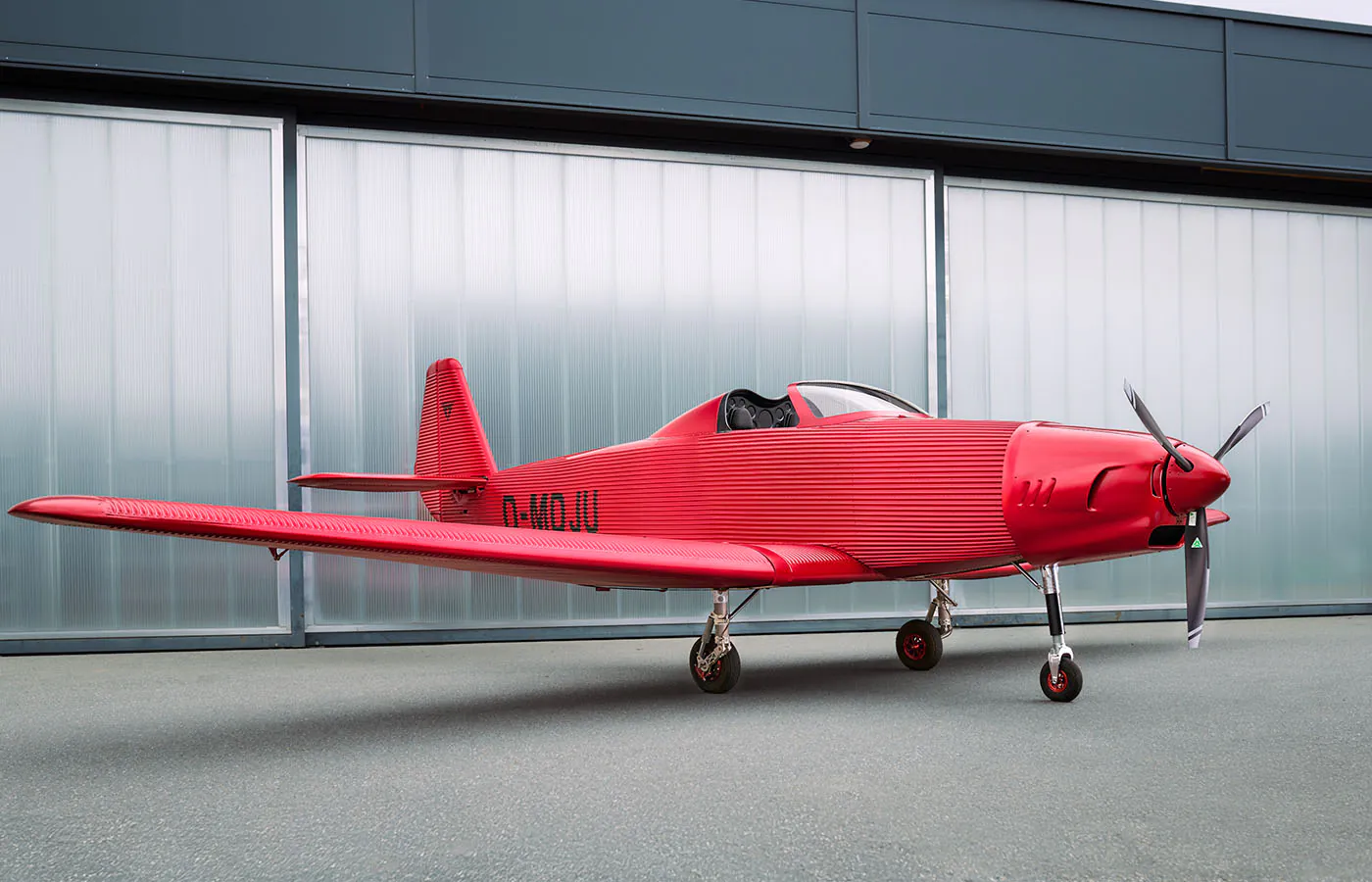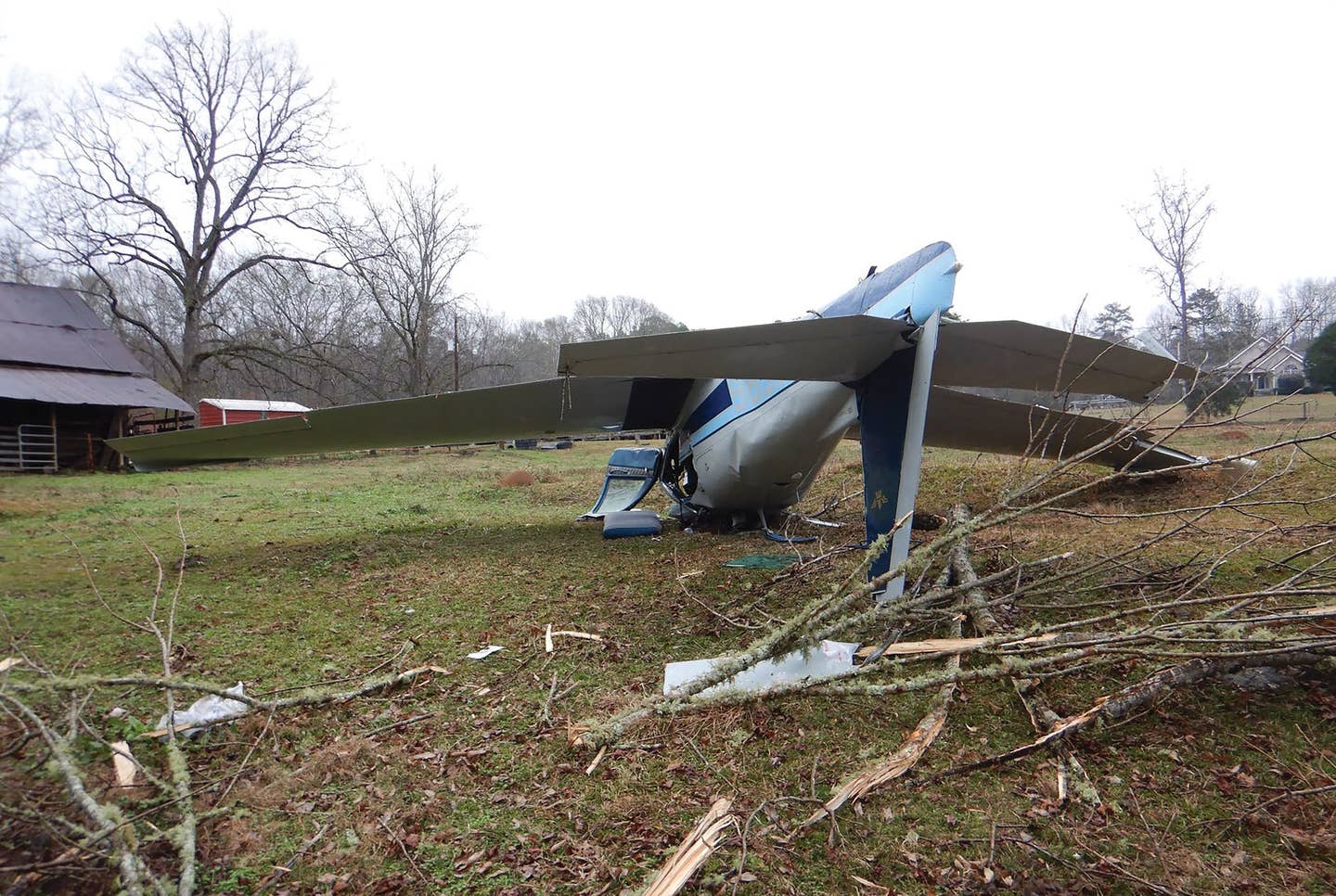The Risk of Cheap Maintenance
Aircraft owners should prioritize safety, reliability, and adherence to regulatory standards over short-term savings.

[Image: Adobe Stock]
As an aircraft owner, it is tempting to seek cost-effective solutions for maintenance to minimize expenses. However, opting for cheap maintenance services without considering the potential risks can have dire consequences for both safety and the long-term value of the aircraft.
This article explores the hazards associated with choosing inexpensive maintenance options and emphasizes the importance of prioritizing quality and reliability over short-term savings.
Choosing cheap maintenance providers often means compromising on the expertise and experience of the technicians working on your aircraft. Skilled and knowledgeable professionals play a vital role in ensuring proper maintenance and identifying potential issues before they become safety hazards. While it may prioritize speed and cost reduction over comprehensive and thorough maintenance procedures in an attempt to complete tasks quickly, essential inspections and checks may be overlooked or rushed, compromising the overall effectiveness of the maintenance process.
Neglected maintenance can lead to undetected issues, such as hidden corrosion, leaks, or worn-out components, which can escalate into major safety concerns over time. Inexperienced technicians may lack the necessary training or familiarity with specific aircraft models, leading to oversights or incorrect procedures during maintenance tasks. Such errors can compromise the aircraft’s integrity, endangering the lives of those on board.
Be sure the maintenance completed on the aircraft you operate doesn’t fall into a few of these common pitfalls.
Mechanic’s Trunk Annuals
Just because a mechanic is willing to show up at the hangar with a box of tools from the back of his pickup on a Saturday afternoon doesn’t mean it is going to be a good long-term solution. I have seen owners who sought to “get the cheapest annuals” done year after year do this, and things get missed, skipped, or purposely omitted from the maintenance work.
Do you think the guy who is doing the annual in his free three hours on a holiday weekend is going to have an extra cowl clip available in his “parts store” in the back of his truck? Do you think he is going to go through the effort to order one and come back just to change that? Probably not. He will rig up the one that is there to “get it through ’til next year.” This hodgepodge approach to maintenance breeds complacency, and over time, it significantly affects the quality and safety of the aircraft.
This doesn’t mean you can’t have a mechanic perform maintenance in your hangar, though. Depending on airport operating or hangar rental agreements, sometimes it is allowed for an owner to have a maintenance provider come to their hangar and do the annual instead of bringing it to another location. I have a number of clients with whom I fly that have nice, heated, well-equipped hangars with all the tools needed, even jacks for the aircraft in a couple of cases, available for a mechanic who comes in and does the maintenance on their aircraft. Many times, these take multiple days, and the owners pay a little premium for the mechanic to come to them, but in the end, they get fantastic maintenance service. Evaluate what it is going to take to get the best maintenance for your aircraft at a reasonable price.
Pick a Maintenance Provider That Knows Your Make and Model
The mechanic on the field where you keep your aircraft won’t always be the best one to undertake the maintenance on your aircraft. If they are good, know your aircraft, and you like them, great. But there is nothing wrong with shopping around a little bit to find the maintenance provider that will deliver the best service for your particular aircraft.
A truly good mechanic will tell you if they are not comfortable working on your aircraft…
This isn’t to say the mechanic at your home airport isn’t a good mechanic, but they may not always be familiar with your aircraft. You might even take the time to talk with a couple of different mechanics and determine their knowledge level about your aircraft and its components. A truly good mechanic will tell you if they are not comfortable with working on your aircraft and may even refer you to someone who is more appropriate.
Mechanics who really know the make and model of aircraft will have the experience, expertise, and knowledge to know what to look for and what they need to do proactively to stay ahead of future maintenance problems. This can save you costs and downtime in the future when you need your aircraft to be reliable.
Rushed Back to Service Might Mean Cutting Corners
“I really need my plane back by Friday,” a customer might tell a mechanic just after they say they are waiting for parts. Too many times an owner pressures the mechanic, or the mechanic pressures themselves into pushing a plane through without being patient enough to get everything just right.
Not waiting to get the correct screws for a cowling or the right clamp for a hose and just making do with “something that will work until the next annual” isn’t the right answer, but it’s done all too often. Too many of these happen over too much time, and the entire airworthiness of the aircraft becomes suspect.
Plan ahead for your maintenance and with sufficient time to manage any delays before you really need your aircraft. If a mechanic is waiting for parts, don’t ask them to put in parts that will get you by but aren’t the right way to fix a problem. Be patient when it is required.
Don’t Go Cheap on the Paperwork
Not all mechanics are the best at “doing the paperwork,” but going in the logbooks is what will document the work they completed. This can have a big impact on future maintenance work or sales efforts for the aircraft. Scribbled logbook entries that just list something like “annual inspection completed” aren’t going to cut it anymore. A good professional mechanic will need to spend a significant amount of time properly documenting their work and putting that into the aircraft maintenance records.
Investing in reputable and experienced…providers may entail higher upfront costs, but it reduces the risk associated with cutting any corners.
This also lets you track trends in the aircraft when things are fixed and may help identify other problems as a result in the future. Be sure to have thorough logbook entries of the work that is done to help reduce risk in the operation of your aircraft. Inadequate recordkeeping and documentation practices by low-cost maintenance providers may hinder traceability and make it challenging to prove compliance with regulatory requirements.
Skimping on maintenance options can also affect the value of the aircraft or how well it shows in a prebuy inspection if you choose to sell it. When it comes time to sell or lease the aircraft, prospective buyers or lessees will scrutinize the maintenance history and the reputation of the maintenance provider. If the aircraft has a history of subpar maintenance, potential buyers may be deterred, resulting in a lower resale value or difficulty in finding a buyer altogether.
While cost-consciousness is essential for aircraft owners, compromising maintenance quality can incur severe consequences. Opting for cheap maintenance services increases the risk of inadequate expertise, use of inferior parts, incomplete maintenance, failure to meet compliance concerns, and diminished resale value. All of these enhance the risk to the pilots operating the aircraft along with their passengers.
Getting a fair price for maintenance is certainly a reasonable expectation, but don’t cut corners or go cheap. Good estimates ahead of time can help sort out the difference. Communication during any maintenance can be a key part of both parties fully understanding expectations and needs in the process.
Aircraft owners should prioritize safety, reliability, and adherence to regulatory standards over short-term savings. Investing in reputable and experienced maintenance providers may entail higher upfront costs, but it reduces the risk associated with cutting any corners.

Subscribe to Our Newsletter
Get the latest Plane & Pilot Magazine stories delivered directly to your inbox






